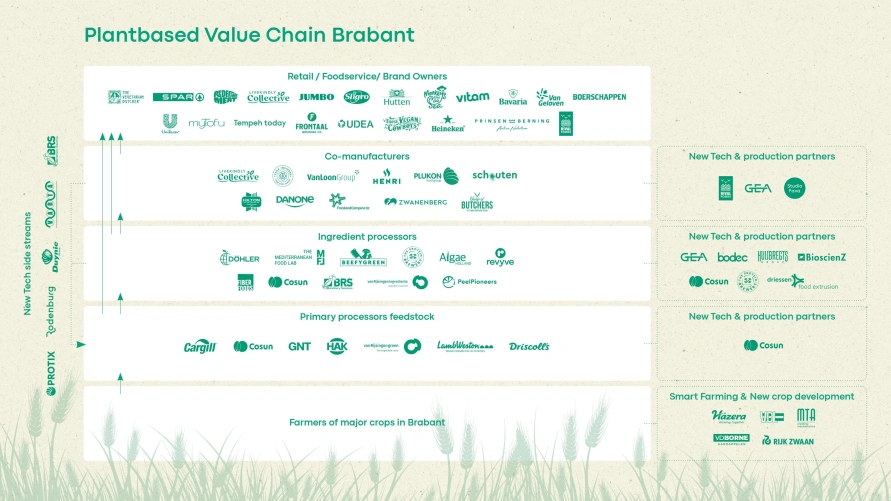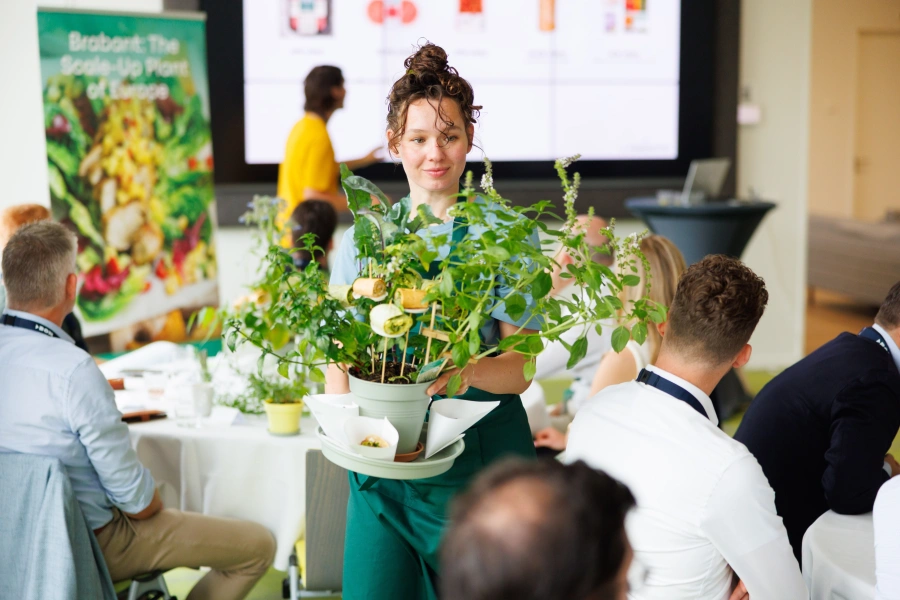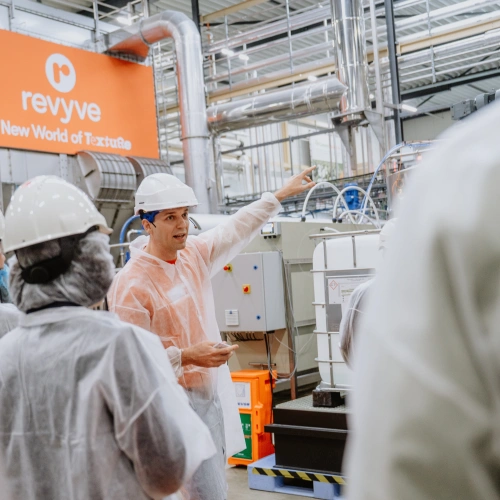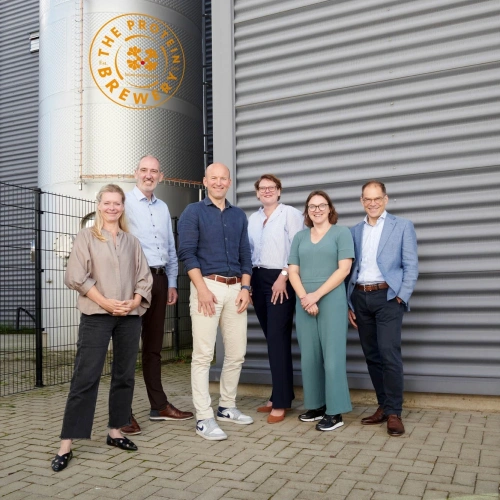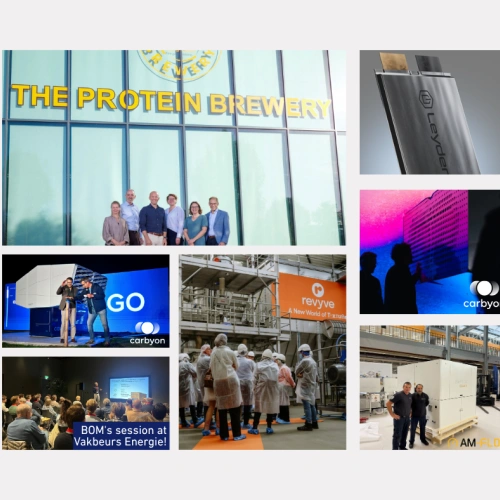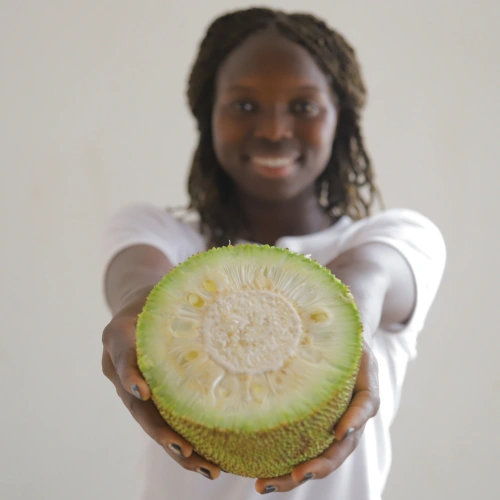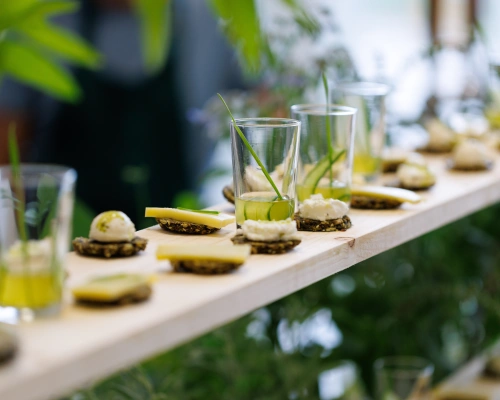The sustainability transition of our food system is urgent and necessary. Nevertheless, the consumption of animal products in the Netherlands remains high. Meat consumption, for example, has been stable at around 75 kilos per person per year (based on carcass weight). And although consumption declined slightly in 2024, consumers still appear insufficiently willing to radically change their eating habits. Meanwhile, the urgency of climate change, nitrogen reduction, and resource scarcity continues to increase.
It’s time to approach the food transition differently: less activist, more pragmatic. Not from the conviction that animal products must disappear entirely from our plates, but from the realization that with smart ingredient innovations, we can make progress much faster. The key to a more sustainable food system lies in the innovative ingredient.
Ingredient-based innovation: the silent engine of change
Step by step, a movement is emerging in which plant-based ingredients are finding their way into existing products — from meat and dairy to cookies and sauces. Companies from Brabant are helping to shape this movement. Businesses such as Fiber Foods, Revyve, and The Protein Brewery supply functional plant-based components that can be seamlessly integrated into conventional production processes.
For example, Fiber Foods produces dried jackfruit fiber that is used in snacks and meat products, such as the plant-based McKroket. Revyve develops functional proteins derived from yeast, enabling producers to replace animal proteins and additives. And from Breda, The Protein Brewery brings Fermotein to market — a sustainable and versatile mycoprotein (fungal protein).
This ingredient-based approach makes it possible to significantly reduce the environmental impact of food without confronting consumers with an entirely new product. It is the silent food transition — invisible on the plate, but with a major impact.
Hybrid Meat
An important — though certainly not the only — manifestation of this trend is hybrid meat: products in which part of the meat is replaced by plant-based ingredients, without compromising on taste or texture. Research by Wageningen University shows that hybrid meat products are a viable option for reducing meat consumption, provided they are promoted in the right way. In particular, flexitarians are open to this.
An additional advantage of hybrid meat products is that they often contain more fiber than fully animal-based alternatives. In recipes for minced meat and meatballs where part of the meat was replaced with plant-based components, for instance, the fiber content increased while fat and calories decreased. This even resulted in better Nutri-Scores.
Eating hybrid (meat) products therefore has the potential to contribute to a higher fiber intake. This is important because, on average, the Dutch eat too little fiber — even though fiber is essential for health. It supports healthy digestion, creates a feeling of fullness after eating, and reduces the risk of cardiovascular disease, type 2 diabetes, and colon cancer.
There’s another advantage to eating hybrid meat: the price. In the first half of 2025, the price of meat rose sharply once again. Meanwhile, hybrid products are increasingly being sold at lower prices than traditional meat.
The Pragmatic Path
Hybrid meat serves as a bridge between the desire for sustainability and the reality of eating habits. It is familiar and acceptable, yet comes with a clearly lower ecological footprint, positive health effects, and an attractive price. And what applies to hybrid meat applies to many other hybrid products as well: they align better with existing eating habits, lower the threshold for adoption, and increase scalability.
Retailers such as Lidl, Jumbo, and Albert Heijn are already embracing this pragmatic path. They are investing heavily in hybrid food and have set concrete goals: by 2030, at least 60% of the proteins sold must be plant-based — in line with the objective of the Ministry of Agriculture, Nature and Food Quality (LNV).
Lidl introduced a 40% plant-based hybrid minced meat, while Albert Heijn even offers an entire hybrid product line on its shelves. Jumbo also sells hybrid products that, for example, include added legumes.
According to Cosun, a shift from the current consumption pattern to 60–40 plant-based versus animal protein is essential for a sustainable food system. A growing market for hybrid products can accelerate this shift in practice — a development that also aligns with the objectives of the European Green Deal.
Learn more


Thijs Taminiau

Why Brabant?
Brabant holds a promising position in this development. With a traditionally strong value chain in food production, an innovative manufacturing industry, and nearby knowledge institutions such as HAS and Wageningen University & Research, the region has all the building blocks needed to play a leading role in the food transition.
Because Brabant is a world-class food production region, we can contribute from here to scaling up startups that innovate with plant-based ingredients. There are already concrete examples of this.
For instance, Revyve makes use of a demo factory operated by Cosun. Recently, Rival Foods moved into a former meat factory in Geldrop. PeelPioneers previously used Renewi’s facilities, with Renewi also supplying the collected orange peels to PeelPioneers. The company then extracts natural ingredients from the peels, which are used in food, cosmetics, and cleaning products. PeelPioneers now has its own production facility in Den Bosch.
These examples show that Brabant’s established and mature food production infrastructure offers ideal facilities for scaling companies focused on innovative plant-based ingredients. That is where Brabant’s strength and added value lie.
Why BOM?
The Brabant Development Agency (BOM) aims to further stimulate this dynamic. Together with REWIN and the Province of North Brabant, we are building an ecosystem in which startups, scale-ups, and established companies work together on sustainable plant-based ingredients.
Our goal: Brabant becomes “The Scale-up Plant of Europe” By this, we mean that Brabant becomes the place where sustainable, innovative ingredients are prepared for large-scale production.
A Sustainability Standard as an Accelerator
For investors and policymakers, the ingredient-based approach offers an appealing perspective. While the meat substitute market seems to have reached a saturation point, hybrid foods open up a much larger mainstream market — and a real opportunity to accelerate the food transition.
But despite the favorable conditions and opportunities, the food transition also requires an active push from policy. During a meeting at Protix – a pioneer in insect proteins – an interesting idea was raised: the introduction of a sustainability standard for the food chain, comparable to the sustainability requirement for aviation fuel in the airline industry.
Such a standard would oblige producers to include a minimum percentage of sustainable or plant-based ingredients in their products. For the meat and dairy sector, that would mean: hybrid as the standard. For animal feed: a required share of alternative proteins and fats derived from insects, fermentation, or residual streams.
The effect of such a measure is twofold. On the one hand, it would create structural demand for sustainable plant-based ingredients, stimulating investment in production capacity. On the other hand, it would provide investors with confidence that the market is genuinely moving toward sustainability.
From Policy to Investment Power
A sustainability standard requires political courage, but it also offers economic opportunity. For the Netherlands, this would mean not only CO₂ reduction, but also industrial leadership in a new sector of economic growth. For Brabant, it would strengthen an ecosystem that can become a global leader in scaling up sustainable plant-based ingredients.
The introduction of a sustainability standard is one of the steps that could structurally accelerate the food transition. But more is needed to truly set this movement in motion. In upcoming opinion pieces, we will explore additional measures — related to energy, regulation, investment, and talent — that together can enable Brabant to accelerate the food transition.
